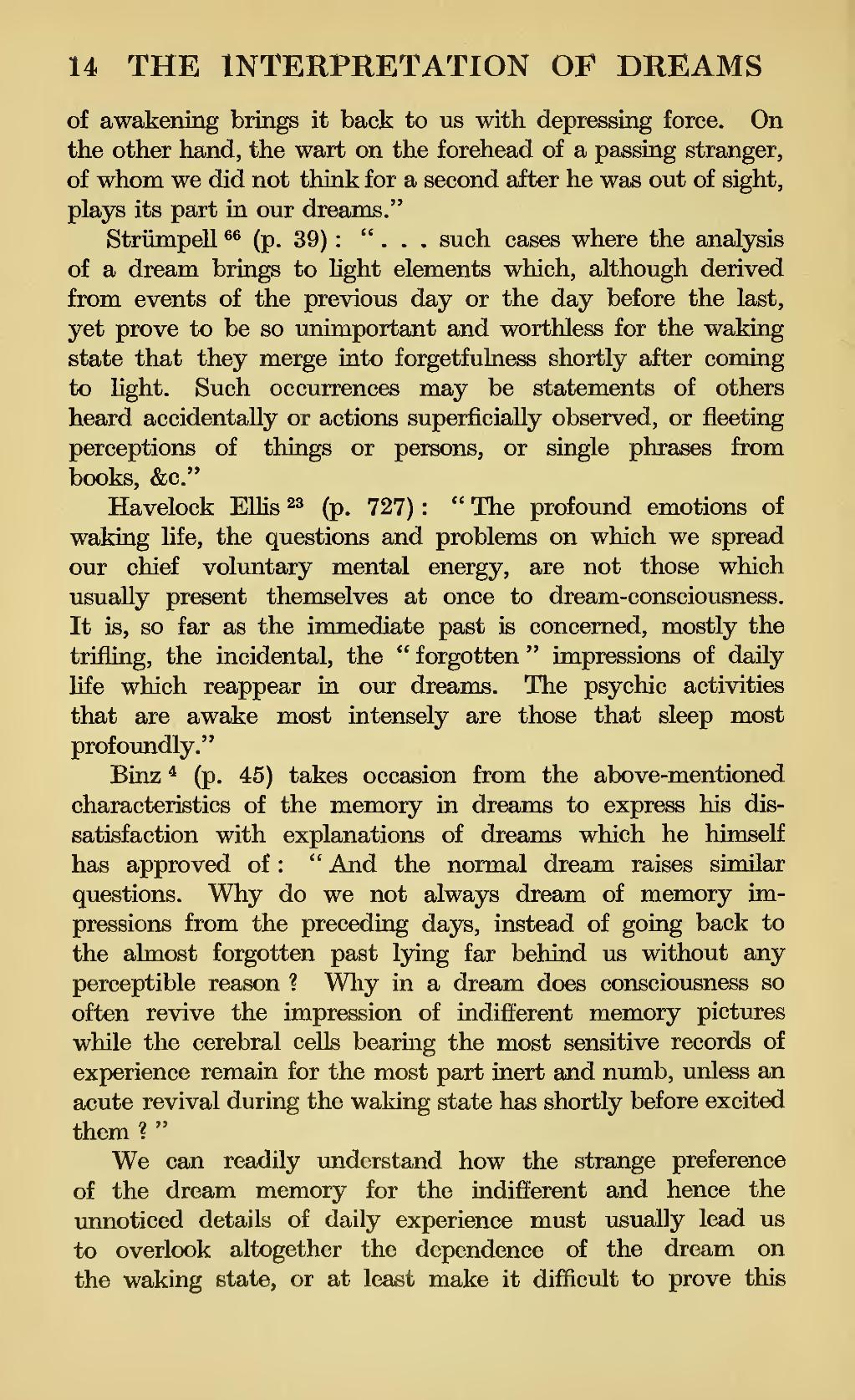of awakening brings it back to us with depressing force. On the other hand, the wart on the forehead of a passing stranger, of whom we did not think for a second after he was out of sight, plays its part in our dreams."
Strümpell66 (p. 39): "...such cases where the analysis of a dream brings to light elements which, although derived from events of the previous day or the day before the last, yet prove to be so unimportant and worthless for the waking state that they merge into forgetfulness shortly after coming to light. Such occurrences may be statements of others heard accidentally or actions superficially observed, or fleeting perceptions of things or persons, or single phrases from books, &c."
Havelock Ellis23 (p. 727): "The profound emotions of waking life, the questions and problems on which we spread our chief voluntary mental energy, are not those which usually present themselves at once to dream-consciousness. It is, so far as the immediate past is concerned, mostly the trifling, the incidental, the "forgotten" impressions of daily life which reappear in our dreams. The psychic activities that are awake most intensely are those that sleep most profoundly."
Binz4 (p. 45) takes occasion from the above-mentioned characteristics of the memory in dreams to express his dissatisfaction with explanations of dreams which he himself has approved of: "And the normal dream raises similar questions. Why do we not always dream of memory impressions from the preceding days, instead of going back to the almost forgotten past lying far behind us without any perceptible reason? Why in a dream does consciousness so often revive the impression of indifferent memory pictures while the cerebral cells bearing the most sensitive records of experience remain for the most part inert and numb, unless an acute revival during the waking state has shortly before excited them?"
We can readily understand how the strange preference of the dream memory for the indifferent and hence the unnoticed details of daily experience must usually lead us to overlook altogether the dependence of the dream on the waking state, or at least make it difficult to prove this
